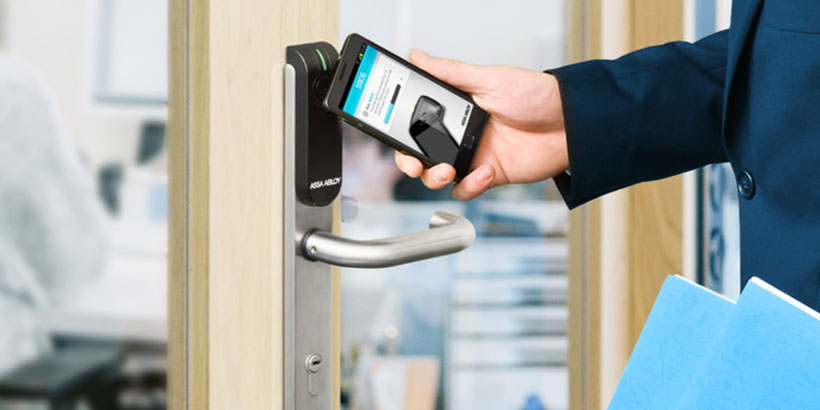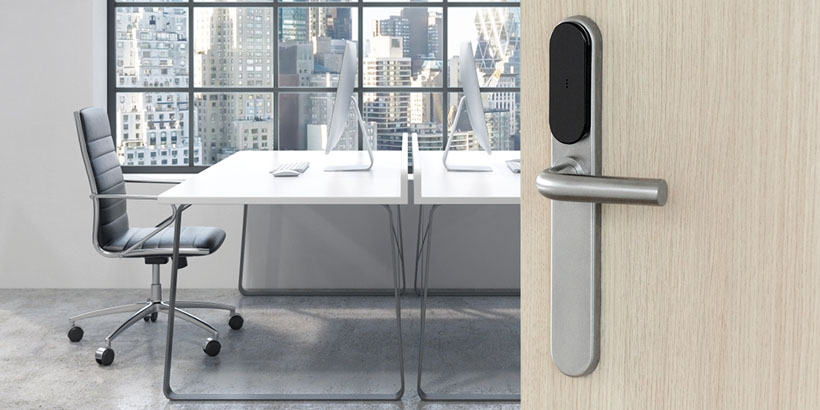
One of the biggest drivers for the use of trusted identities is current trends in the cyber space. End users are increasingly aware of the steps being taken by banks, financial institutions, high level retailers and many payment-based websites, in that users are sent security codes via mobile devices to prove they are who they claim to be. In many businesses and organisations faced with the growing challenge of cyber fraud, having an appropriate credential – code, password or token – is no longer enough. The emphasis is on ensuring the holder of the credential is who they should be.
For many businesses and organisations, access control is not just about who has a credential; it is about ensuring the user is the person authorised to use the credential. The issue of ‘borrowed’ keys – in whatever form they take – has become an important consideration, and verification is now a sought-after element of any access control operation. Trusted identities, achieved through the use of Mobile ID, can help.
It is critical that users see employee’s mobile devices, such as smartphones and tablets, as a part of their network infrastructure rather than as personal devices. With such an approach, the devices play a pivotal role is establishing and verifying identities, not just for access control, but for a host of other purposes. Once such a change in attitude is established, the true benefits of trusted identities and mobile access solutions can be realised.
Trusted IDs in use
It is important to consider the use of trusted IDs across a range of applications in order to realise the benefits on offer. In the built environment, solutions such as the Aperio range of wireless door locks from Abloy UK play a pivotal role. While high risk and external doors will be fitted with dedicated hard-wired access systems, other doors are typically secured with traditional keys, or simple keypads with single codes. These solutions are not only cumbersome to manage, but cannot support trusted identities.
However, by using the Aperio range of wireless electric locks, additional doors can be added with ease, without any need for dedicated cabling. This allows a wealth of benefits to be realised without the expense and disruption of a hard-wired upgrade. While the Aperio range has been established for some time, a new upgrade to the Aperio E100 escutcheon allows the use of BLE (Bluetooth Low Energy), which facilitates the use of mobile ID credentials, allowing the use of trusted identities.

Aperio can add value to an access control proposition, permitting the management of all spaces on a site and allowing trusted IDs to be used for booking rooms for meetings, controlling access to assets, streamlining visitor management, etc..
Trusted IDs can also resolve issues with storage and access to off-site equipment. For example, utilities often have a large number of distributed field sites which engineers or contractors may need to access. Many of these might include gates or cabinets secured with padlocks. Traditionally, this poses a key management headache for utility companies. However, Abloy UK offers ABLOY BEAT, a solution for sites with a high volume of locking points. The efficient system can be managed via other third party software solutions using a supplied API, or dedicated software can be used. Contractors and visitors receive the necessary digital key via a mobile device, which can be sent when they are on site.
 Other solutions include ASSA ABLOY Incedo Business, a new entry-level embedded system aimed at SME customers, available from Abloy UK. The system can be deployed using hardware supporting up to 32 doors, or can be cloud-based for enhanced flexibility and efficiency. It utilises mobile IDs and can be integrated with Aperio and ASSA ABLOY BLE readers.
Other solutions include ASSA ABLOY Incedo Business, a new entry-level embedded system aimed at SME customers, available from Abloy UK. The system can be deployed using hardware supporting up to 32 doors, or can be cloud-based for enhanced flexibility and efficiency. It utilises mobile IDs and can be integrated with Aperio and ASSA ABLOY BLE readers.
To meet the needs of sites with short-term use such as holiday homes or temporarily bookable facilities, Abloy UK also offers SMARTair. Using mobile IDs sent across open air, credentials not only grant access but can also be used to update the system, adding schedules, permissions, etc..
In summary
Access control no longer requires dedicated systems, physical credentials or restricted networks. With the use of trusted identities, decision control systems can handle access control tasks through APIs, with mobile IDs providing a secure and flexible interface.
Abloy UK has designed a wide range of solutions to ensure a flexible and smart approach to security, adding verification and a more business-efficient solution for most users.

